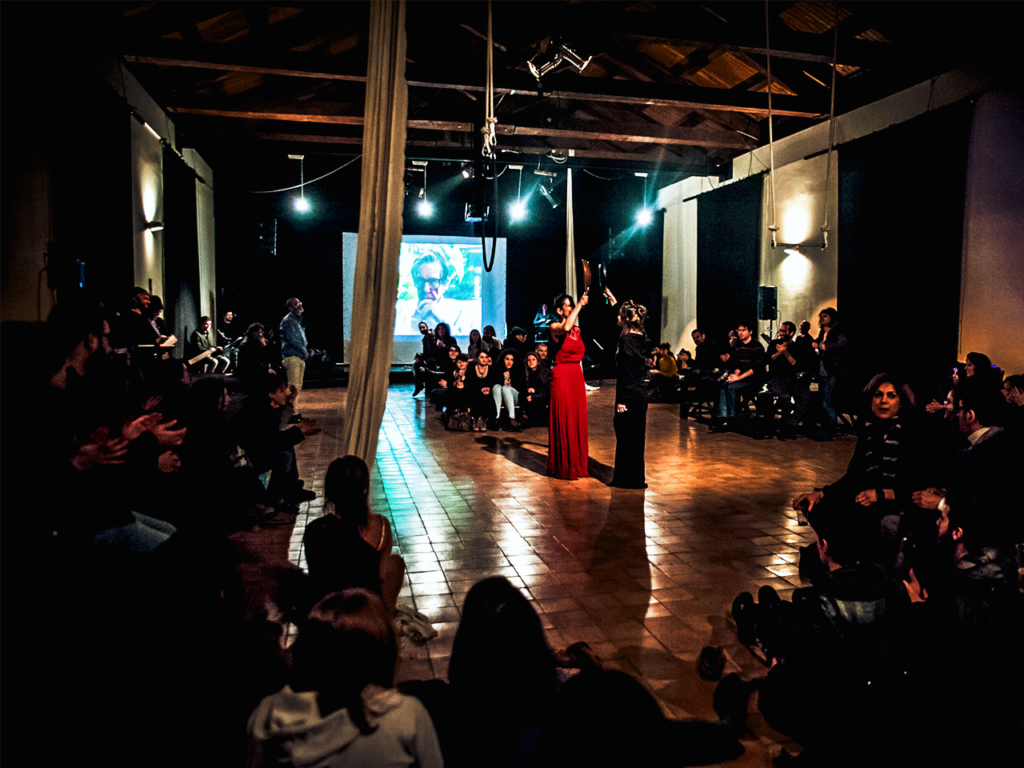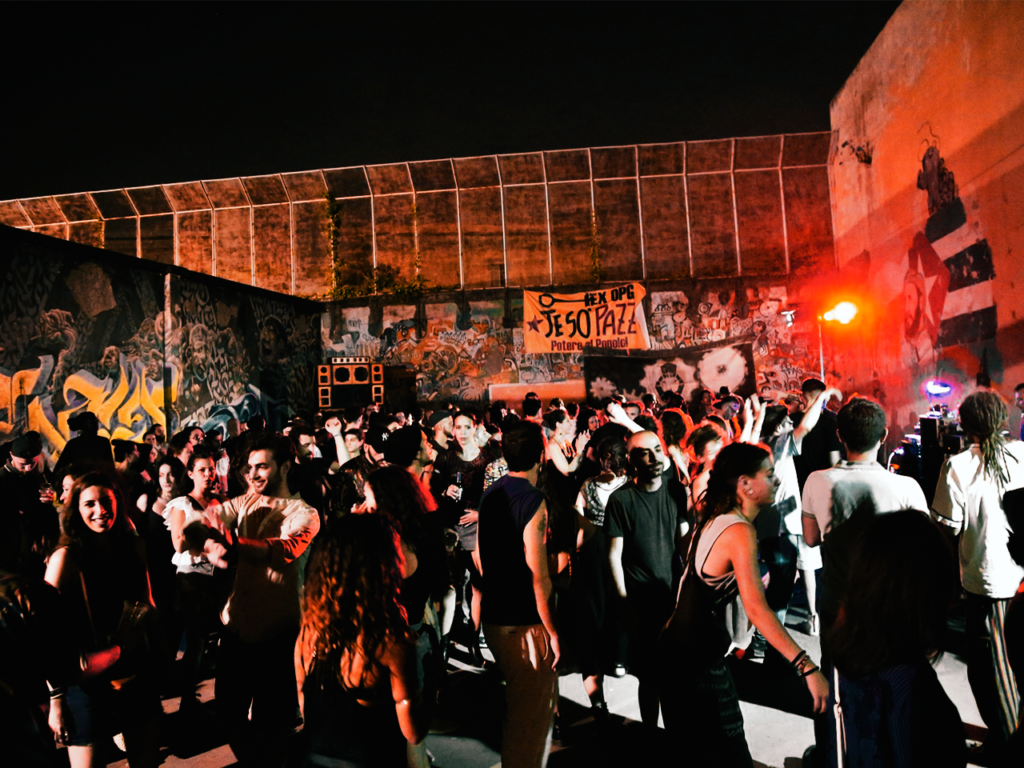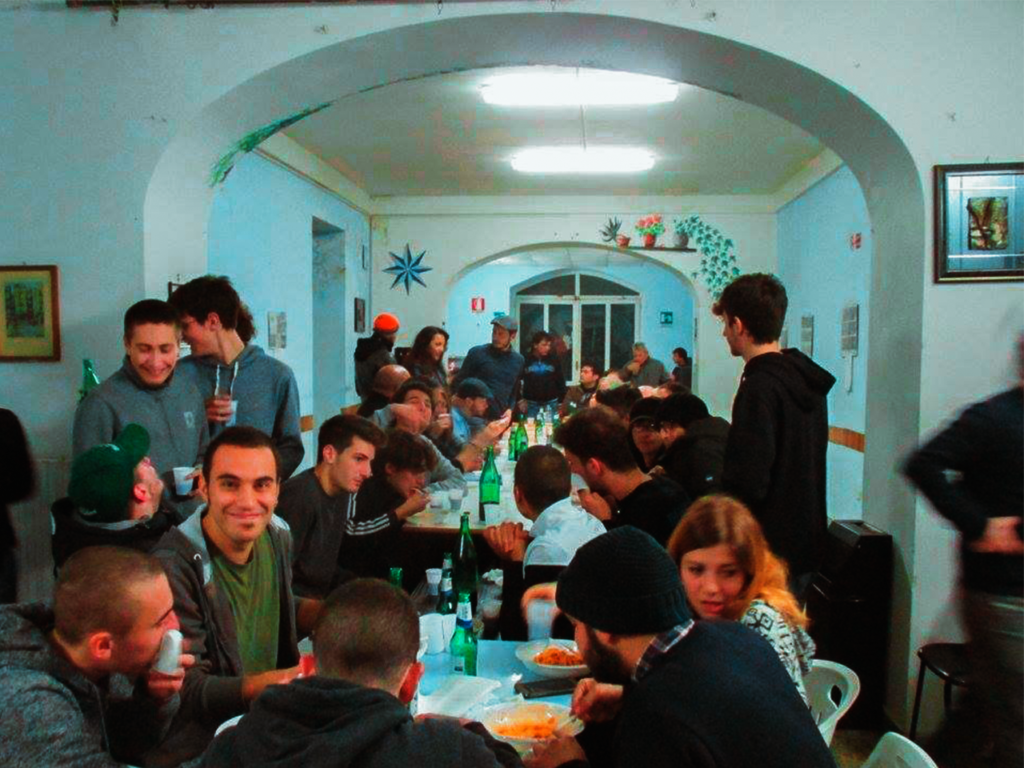A guide to the commons in Naples in 10(+1) questions
Foreword: the following Frequently Asked Questions are intended to answer, in a simple and direct way, the questions most often raised by those who find themselves for the first time dealing with the practice of the commons of urban civic use, it being understood that participation in these will always remain open and free, and their model is constantly evolving according to the reflections and changes of the communities that animate the commons.
1. What is a common good?
AN ABUNDANT SOURCE OF SOLIDARITY,CAPABLE OF CONVERTING ‘SOCIETY’ INTO A COMMON GOOD, SHARED, OWNED BY THE COMMUNITY, TO BE TAKEN CARE OF TOGETHER.
It is the response of an informal community (and one that chooses to remain informal) which, having realised the potential that has been disregarded, decides to take possession of an underused place in its territory, restoring its value through civic use. This is to respond to the widespread need to become active and participate in the political and civil life of one’s own territory, from the bottom up, electing as one’s own the interest of all. Moved by the awareness that acting for one’s own good cannot disregard the good common to all. A common good is, therefore, a practical, political, cultural, legal and community experimentation which, through the collective use and management of a space, makes it a common good. This is from the standpoint of a society based on cooperation and not competition, horizontal and not top-down, porous and egalitarian, and always respectful, through mutual care, acceptance and inclusion of the other and of the other, of cultural otherness.
2. What legal form do the commons of the Neapolitan network have? Are they obtained through assignment?
The urban commons in Naples are not assigned to any private legal entity (including foundations, associations, NGOs or non-profit organisations), in order to ensure that their operation is accessible to all at all times, without formal subscriptions or memberships. The commons in Naples emerge spontaneously and voluntarily through the restitution of spaces to the city and through the drawing up of a declaration of collective urban use by the informal communities that reclaim and animate them. In some cases, the declarations have been recognised by a series of resolutions and official acts of the City of Naples (and have come to constitute references and study models to be exported to other realities).
3. To whom does a commons belong?
The ownership of a commons remains with the public body which retains the ownership of the space (the property). Self-organised use and management is the responsibility of the informal community of reference, which everyone can join at any time and participate freely, without paying dues or signing anything, just by choosing to share their time and put their energy at the disposal of everyone, whenever they want and for as long as they want. Ownership remains public but the use is common. It means that the property belongs to everyone, and not to no-one, and that everyone can and must take care of it, without delegating, for those who will come after them. And since it becomes the responsibility of the whole civil citizenship, of the community of the past, present and future, it is paramount to get activated, participating and taking responsibility, with a vision of restoration that implies a holistic vision of civil society, inclusive of the community in which we are immersed, and of virtuous urban regeneration.
4. Who decides in a common good? Is there a management? How are decisions taken to manage it?
In a commons, there is no board or president. All decisions are taken collectively, freely, sitting in a circle, the assembly, always open, among equals, where no one is excluded but included from the first moment. The assembly is open to everyone, always. It is usually held every week, at least, and the day varies according to the organisation of the calendar of appointments of each common good: you can usually write an email to get the precise details (e.g. inclusion in the agenda). Each commons can divide its assemblies into different forms (e.g. management assemblies as opposed to steering assemblies), and organise its internal meetings in different forms (e.g. thematic tables), which it must take care to communicate in a transparent and easily accessible manner.
5. How are the decisions made?
In an attempt to be as inclusive as possible of everyone’s positions, and grounded in debate, Naples’ urban commons has adopted consensus as its decision-making approach. Consensus means that each issue is debated until a widely shared decision is reached together. Decisions are therefore not taken by vote or by a majority, in order to balance the interests of all. From the point of view of taking care of points of view and including the positions of each and every one as comprehensively as possible, to the detriment of rapid, efficient and effective timescales of an economic nature, consensus and the assembly methods it employs are a process based on active and participatory listening, the free exercise of active participation, and reciprocal and constant confrontation aimed at reaching shared decisions that respect the opinions of all. In the commons, the other and the other is always welcomed, because through its listening the community recognises a part of itself that, otherwise, by remaining entrenched in its own positions, or convinced of self-knowledge, would remain precluded, ending up crystallising and hindering the continuous updating of the new social partners emerging over time and renewing the social fabric, composition and cultural otherness of the community in continuous evolution. The commons seeks to never stop experimenting with how to be as inclusive as possible by encouraging free, direct and widespread participation by all (e.g. with ‘community building’ working groups). There is no unanimity or veto power, but the search for agreement even in disagreement.
6. Who can participate in the assembly?
Anyone who wishes to participate can enter, and leave freely and at any time. A well, they decide whether and how much to be part of the community. A commons, to be such, must ensure, in fact, that its community is always open and heterogeneous. The assembly is the moment of maximum sharing, so it is always important to keep it alive and animate it. The assembly is the place where decisions are taken that will have repercussions on the entire life and management of the space, including its very survival. A commons is alive as long as its community is alive and vital, and the community is alive as long as it is active and participates in political life and therefore in the place where decisions are taken. Whoever is part of a commons decides to apply his freedom actively and not passively, niether by accepting decisions taken from above, nor by delegating but by assuming the responsibility of participating in their elaboration, and therefore actively and voluntarily exercising his freedom, devoting his time to actively listening to and welcoming the problems of the other parts of his community. The commons, aware of the interdependent nature of people, are a place where one practices the mutual care of relationships with one another, which often, outside a commons, given the climate of distrust and competition, one is now unaccustomed to cultivating. In order to return to a model of community life, and to unhinge the atomising automatisms of today’s individualistic society, it is important to practise seizing and making the most of every opportunity to meet others, devoted to respecting diversity, and to equip ourselves with the antibodies for civil coexistence: the assembly, kept open, is the place deputed to ensure that in a common good it is possible to meet not only those who are close to the community in terms of sensitivity and common values, but also the third party, the different, the other or the other, those who are self-excluded, those who are introverted, those who feel in the minority, who here can find a non-judgmental community that welcomes them.
7. How can I participate in the life of a commons?
To be part of a commons, it is enough to participate in the assembly or in the collective care of the space, write to find out how to participate or when the next useful meeting will be, where you can offer your availability or make your request. To be part of the community, it is enough to participate. A commons lives thanks to the presence of anyone who wants to take care of it. You can participate by indicating, at any time, at the earliest opportunity, your willingness to actively help in the development of a single event or specific activity or in general the life of the common good. Participation ranges from the care of the spaces (ordinary cleaning, maintenance, caretaker, technical tidying up, self-building) to the organisation of individual public events (proposing, assisting), guaranteeing access to seminars and workshops or political meetings, communication, logistical support, etc., depending on one’s availability and pooling one’s skills and even just when one’s time is willing to donate. In this sense, it may be useful to consult the weekly calendar of each common good, or go directly to the events where, if you wish, you can offer your availability to interact with the community. Simply offer yourself.
8. Is there a telephone number?
Usually each commons has an email address, the control and response times of which vary since the commitment is always voluntary. On the pages of the individual commons space on CommonsNapoli.org you can find information on how to get in touch with all the commons in Naples.
9. Can I rent a space in a commons for a private event?
This is not possible because it would be a private use that would be in irreconcilable conflict with the use and management of the common good, which is common and can never be exclusive. It would mean precluding the free use of spaces that are, instead, always guaranteed to be freely crossed and would place a limit on inclusion. Exceptionally, there may be public events, but they may be limited in number according to logistical needs, or, out of respect for those who hold them, they may not be accessed after a certain time or when the event has already begun. There may be workshops, seminars or company rehearsals where the private interest of a worker in difficulty is protected, but never in a way that is lasting or hinders the free use of the spaces in the long term. The use of the spaces is open to everyone free of charge, at all times, without costs of use or assignments except for temporary ones; the organisation is coordinated in the public assembly or by the thematic tables.
10. How does the management of the space work?
The care of the space is left to the free self-organisation and assumption of responsibility by each member of the community. A commons belongs to everyone, and not to anyone or to each individual. It must be attended to from this perspective, without delegating or waiting for appointments, seeking to leave it in better condition than it was found, with respect for those who will have to use it later. There is no staff for cleaning and maintenance, this is why the care of all those who live, even for a short time, or pass through the common good is required. If care is not taken, it will fall on the shoulders of others, so the invitation is to raise the level of attention more than if one were in one’s own property, since the whole community is responsible for its use with respect to the citizens who have entrusted its management to it. The City of Naples, to which the ownership of the commons remains, covers the costs of electricity and water, while each community covers all other management and maintenance costs through a common fund (in addition to procuring means of production with which to provide the community to ensure, for example, the possibility of making workshops), and therefore the events are accessible through free offers of self-financing.
+1. Is there a fee to pay for common good events? Is it necessary to register or become a member?
S/HE WHO HAS SHARES, S/HE WHO DOESN’T, TAKES.
In a commons, concerts, shows, screenings, seminars, conferences and meetings are always public and free admission. A contribution is welcome, sometimes recommended depending on the expenses of the person who created the event, but never binding, which serves to reduce the minimum expenses and to provide the spaces with the means of production necessary for citizens to carry out political, legal and cultural experimentation and keep the common good alive and accessible to all.


